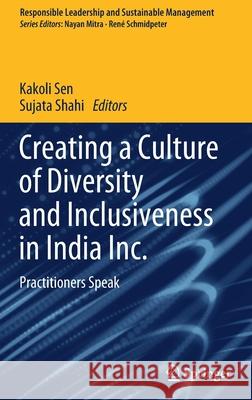Creating a Culture of Diversity and Inclusiveness in India Inc.: Practitioners Speak » książka
topmenu
Creating a Culture of Diversity and Inclusiveness in India Inc.: Practitioners Speak
ISBN-13: 9789811642364 / Angielski / Twarda / 2021 / 272 str.
Creating a Culture of Diversity and Inclusiveness in India Inc.: Practitioners Speak
ISBN-13: 9789811642364 / Angielski / Twarda / 2021 / 272 str.
cena 603,81
(netto: 575,06 VAT: 5%)
Najniższa cena z 30 dni: 578,30
(netto: 575,06 VAT: 5%)
Najniższa cena z 30 dni: 578,30
Termin realizacji zamówienia:
ok. 16-18 dni roboczych.
ok. 16-18 dni roboczych.
Darmowa dostawa!
Kategorie:
Kategorie BISAC:
Wydawca:
Springer
Seria wydawnicza:
Język:
Angielski
ISBN-13:
9789811642364
Rok wydania:
2021
Wydanie:
2021
Numer serii:
001233179
Ilość stron:
272
Waga:
0.51 kg
Wymiary:
23.39 x 15.6 x 1.42
Oprawa:
Twarda
Wolumenów:
01
Dodatkowe informacje:
Wydanie ilustrowane











